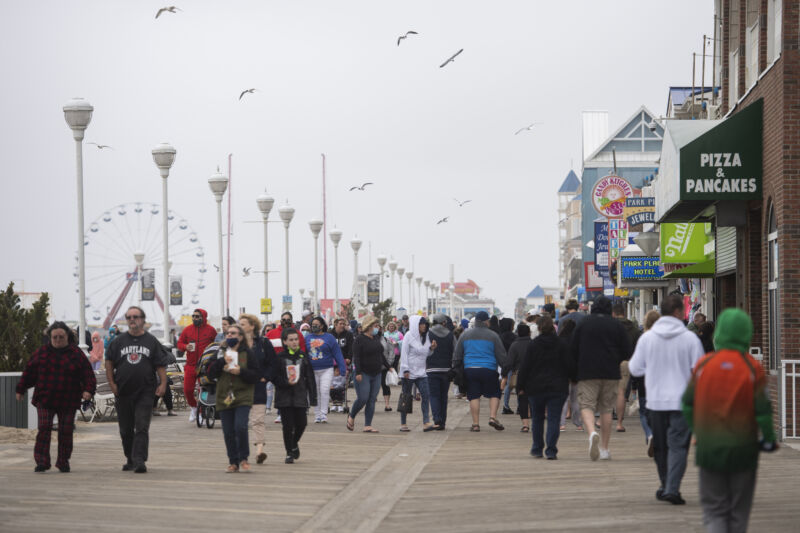Most COVID cases don’t spread virus—it’s the superspreaders we need to stop

Enlarge / Crowds of people walk along the Ocean City Boardwalk during Memorial Day weekend on Sunday, May 24, 2020. (credit: Getty | Caroline Brehman)
Much about how the new coronavirus spreads from one victim to the next remains a maddening mystery. But amid all the frantic efforts to understand transmission, there is one finding that appears consistent: that it is inconsistent.
Some people-most, even-don't spread the virus to anyone in the course of their infection. Others infect dozens at a time.
It's a phenomenon that looked, at first, like anomalous anecdotes-a large outbreak from a Washington choir practice, a South Korean megachurch, a wedding in Jordan-but it has become a fixed feature of the new coronavirus, SARS-CoV-2. And researchers have started to settle on numbers for it.
Read 17 remaining paragraphs | Comments